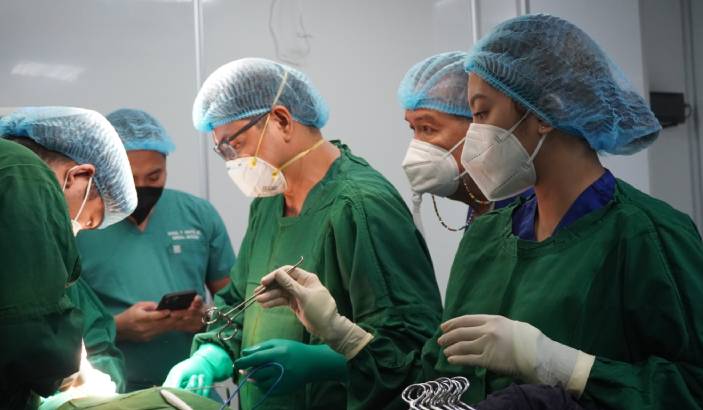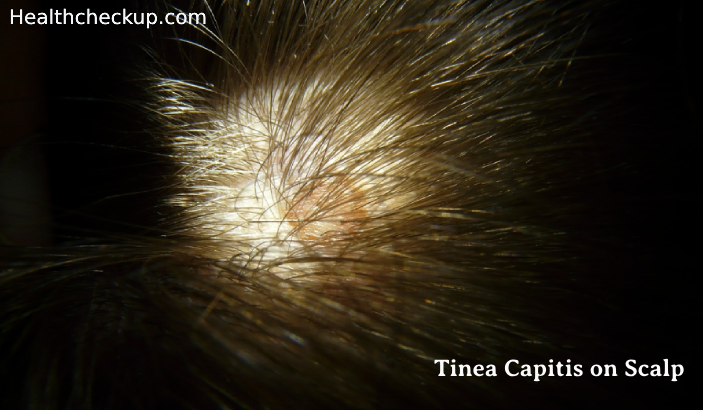Through allergy testing, you can come to know the cause of any allergic reaction you may have to certain foods. With these results, patients and doctors can work together to develop a treatment schedule to manage the symptoms of an allergy effectively. Testing for an allergy includes the medical history of the patient, a physical examination, skin tests, blood tests and food allergy testing.
Types of Allergy Tests:
Allergens bother people differently, so it’s best to leave it to the allergist to decide which test is right for you. The allergist will begin by performing a physical examination. He will then ask you for your allergic symptoms to find out if any allergy testing is required.
There are Several Allergy Tests that Your Allergist Can Choose to Conduct. These are:
IgE Skin Tests:
An allergy skin test isn’t just the commonest of all allergy testing methods but also the most painless. A tiny amount of some allergens is entered into your skin by pricking the surface. If you do have an allergy, the skin will swell up and will resemble a mosquito bite.
Within 20 minutes of taking this test, you will know what’s causing an allergy. You’ll probably be left with a small irritation or hives at the site of the pin prick, which will go away in 20-30 minutes. If your skin tests negative, your physician might think you have allergies and may conduct “intradermal” tests. These tests are best done in an allergist’s office to rule out the possibility of side-effects.
Before taking an allergy skin test, you will be asked to take a positive histamine control test to test for histamine and a negative saline control test which will prove how sensitive the skin is to interpret allergy tests.
Types of Skin Tests:
Prick tests and Intradermal tests are the two kinds of skin tests to undergo for allergy testing.
-
-
Prick tests:
A skin prick test involves placing a few drops of common allergens on the forearm or back of the patient and pricking the skin lightly through the drop using a needle.
-
Intradermal tests:
Here, a small dose of allergen is injected into the epidermis. The patient may develop swelling, redness or itching at the injection site within 20 minutes. To reduce itching, mild cortisone may be applied.
-
Patch tests:
These tests test for contact dermatitis. The allergist places a small amount of allergen on the back, bandaging the area. He looks for a reaction after 48–72 hours. If there is a reaction, it will show up as a rash or blisters.
The accuracy of allergy skin tests can be marred by medications like antidepressants or antihistamines, or some skin conditions like eczema.
-
Blood Tests:
Through blood tests, the extent of presence ofIgE antibodies in specific foods is measured. IgE or immunoglobulin E refers to the antibody that sets off symptoms of food allergies.
Another blood test taken for food allergies is called Enzyme-linked immunosorbent assay (ELISA or EIA). This test measures the amount of allergen-specific antibodies present in the patient’s blood.
Oral Food Challenge:
When a skin prick and blood tests do not help to arrive at any definitive diagnosis, an allergist may ask you to take an oral food challenge (OFC), known for its accuracy.
Safety Measures to Take During Oral Food Challenges:
This test should be conducted only by a professional and an experienced allergist at a diagnostic laboratory where the necessary equipment and medication are at hand. When administered under these conditions, OFCs are considered safe.
During administration of a food challenge, the allergist will ask you to eat food that you may react to. These will be given in fixed doses incrementally in order to check the symptoms. After each dose, you will be monitored for signs of reaction. If you don’t show any symptoms, the doses will increase, but if you do, the food challenge will stop. Usually, under these conditions, reactions are mild, such as hives or flushes. If you test positive, your allergist will advise you to avoid certain foods and prescribe medications.
Types of Oral Food Challenges:
There are three types of oral food challenges:
Double-Blind, Placebo-Controlled Food Challenge (DBPCFC):
As far as diagnosing food allergies is concerned, this one is the“gold standard.” The patient is given doses of the suspected food allergen or a placebo. Both the allergen and the placebo look alike, so you don’t know which one you’re taking, hence it is called “double-blind.” This brings in objectivity into the testing.
Single-Blind Food Challenge:
Here, the allergist is aware that you are taking in the allergen, only you don’t.
Open-Food Challenge:
You and your doctor are aware that you are taking in an allergen. This challenge is best taken when a patient’s nervousness does not affect the results of the test.
Food Elimination Diet:
In order to diagnose your food allergy, your doctor may ask you to cut out certain foods from your diet. By doing this, and by combining skin or blood tests, the doctor can diagnose IgE-mediated food allergies and any related disorders like allergies that have adverse results on the stomach.
This diet lasts for a maximum of four weeks. The doctor will monitor your symptoms while you do not eat any foods the doctor suspects are causing an allergy. If one or several of these foods cause an allergy, your symptoms should disappear by the end of four weeks. Your doctor may also choose to reintroduce one of the foods cut out to check for its effect on you. If the symptoms show up again, you’re allergic to that food.
However, if the results of this diet do not show any conclusive results, you may be best advised to turn away from foods that haven’t given you a pleasant experience. Getting away from food allergies needs a lot of willingness to change your lifestyle and lifestyle. If you’re willing to make this change, get in touch with healthcare practitioners who deal in food allergies.
Medically Reviewed By

Maanasi specializes in health topics including diet and nutrition. A mother of an untiring seven year old, she enjoys nurturing her love affair with English. She is often found nestled with a book, plopped against a dozen pillows, smiling away at the brink of finishing yet another book of the many dozens, that adorn the shelves of her Mini Library!








